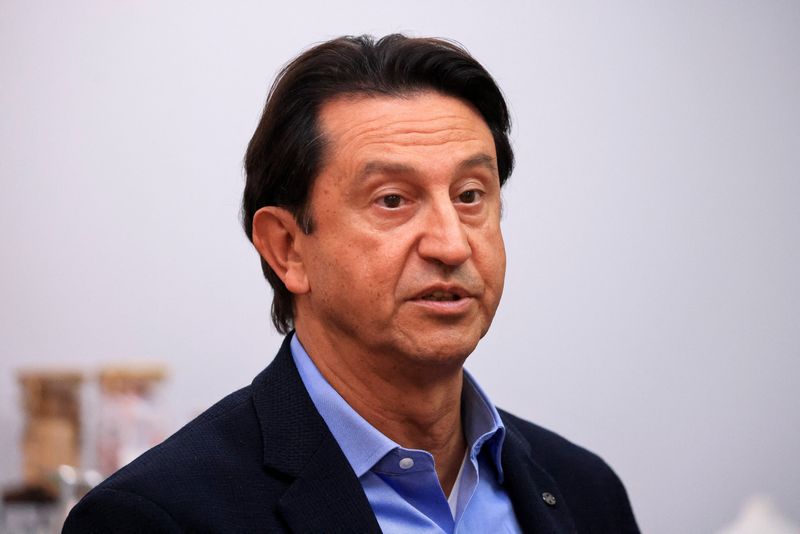By Heekyong Yang and Hyunjoo Jin
SEOUL (Reuters) -Hyundai Motor has named Jose Munoz, its U.S. chief and global chief operating officer, as co-CEO, the first appointment of a foreign national to that rank at a major South Korean conglomerate.
The move - along with the appointment of a former U.S. diplomat to oversee global external affairs - is expected to help the automaker navigate potential challenges posed by a second Trump administration.
Hyundai, which together with affiliate Kia is the world's third-biggest automaker, currently has three co-CEOs.
Munoz, who is credited with propelling the company to record sales in North America, will still be outranked by co-CEO Euisun Chung, grandson of the company's founder, who is also executive chair, as well as by president Chang Jae-hoon who will become group vice chair overseeing the automotive division. Lee Dong-seok, who also is a company president, is the other co-CEO.
The leadership changes will enhance Hyundai's global competitiveness and help "better prepare for uncertainties in the global business environment," the automaker said in a statement.
Sung Kim, a former U.S. diplomat who was part of a team assisting Donald Trump in his first term at a summit with North Korean leader Kim Jong Un, was hired as an advisor in January. He will now be in charge of global external affairs, Hyundai added.
Trump's policies - which include pledges to boost tariffs on imports and cut subsidies for EVs - have the potential to inflict much damage on Hyundai and Kia which together rank second after Tesla (NASDAQ:TSLA) in U.S. electric vehicle sales.
Imports account for about 60% of their U.S. sales, according to an estimate by Hanwha Investment & Securities analyst Kim Sung-rae.
Trump has also floated the idea of imposing 200% tariffs on cars imported from Mexico, where Kia operates a production site.
Hyundai began production of EVs at a factory in Georgia in October, expecting those vehicles to be eligible for federal credits created under the Biden administration. It has also announced plans to build two battery factories with LG Energy Solution and SK On in North America.
But Trump's transition team plans to end the $7,500 consumer tax credit for EV purchases as part of broader tax reform legislation, sources have said.
Munoz, a Spanish native and U.S. citizen with a PhD in nuclear engineering, joined the automaker in 2019 as CEO of Hyundai Motor (KS:005380) America.
Before that, he worked for 15 years at Japan's Nissan Motor, where he was once considered a potential candidate to take the helm after the ouster of Carlos Ghosn.
"The promotion is not only a preparation for Trump presidency, but also but also recognition of Munoz's role in Hyundai's solid U.S. performance despite its EVs being not eligible for U.S. consumer tax credits," said Park Ju-gun, head of corporate analysis firm Leaders Index.
Hyundai said it credits Munoz with "record sales, market share growth and financial performance for both the Hyundai and Genesis brands in the North American market".
Top management ranks at the automaker have traditionally been dominated by South Koreans but Chung has aggressively sought to bring in foreign executives from other carmakers.
Hyundai has also hired several former South Korean diplomats in recent years to its Global Policy Office in a move widely seen as anticipating policy uncertainties that could come with a change in U.S. administration.

Munoz's appointment is effective from January. Hyundai said it has not decided who will take on his current roles of U.S. chief and global chief operating officer.
Hyundai's shares climbed 2.2% on Friday, while Kia's shares were down 1%.